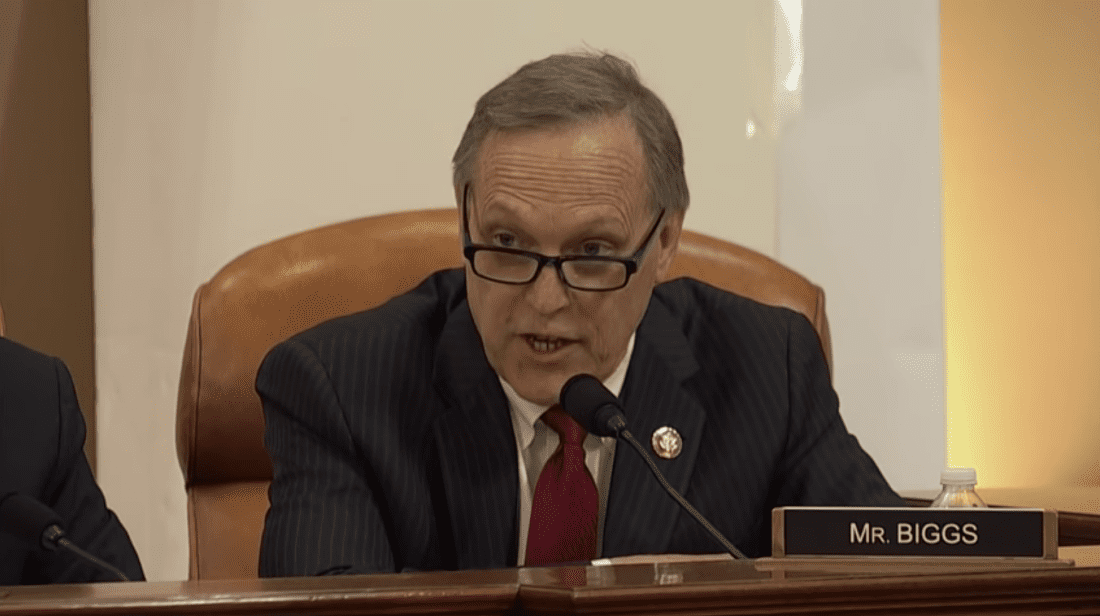The U.S. House has passed a bill, dubbed the Families First Coronavirus Response Act (FFCRA), to help the nation handle the COVID-19 pandemic.
Proving yet again that homophobes too often fail to keep their focus on the important bits, Congressman Andy Biggs (R-AZ) has publicly declared that he refused to support the bill because — however much it might help control the spread of the potentially deadly virus — it includes people he doesn’t like (read: LGBTQ couples) in its definition of “families.”

The version of the bill first introduced on March 11 provided a framework of definitions outlining who was eligible for paid leave. The bill specified that a person was entitled to leave if caring for a “biological, foster, or adopted child, a stepchild, a child of a domestic partner.”
It went on to define what constitutes a domestic partnership:
The term “domestic partner”, with respect to an individual, means another individual with whom the individual is in a committed relationship.
…
COMMITTED RELATIONSHIP DEFINED. — The term “committed relationship” means a relationship between 2 individuals, each at least 18 years of age, in which each individual is the other individual’s sole domestic partner and both individuals share responsibility for a significant measure of each other’s common welfare. The term includes any such relationship between 2 individuals that is granted legal recognition by a State or political subdivision of a State as a marriage or analogous relationship, including a civil union or a domestic partnership.
It’s worth noting that these definitions were excised from the final version of the bill.
Still, Biggs is willing to stand proudly behind his decision to vote against employer tax credits, strengthened food safety provisions, access to unemployment insurance, and diagnostic testing for the uninsured. In a radio program hosted by the Family Research Council (a designated hate group according to the Southern Poverty Law Center), Biggs explained his objection:
They’ve redefined family for the first time in a piece of federal legislation to include committed relationships. The problem with that, of course, is it’s really hard to define a committed relationship, and it’s really hard to define anything related to that. And so they’ve tried to, they’ve put in — in my opinion — kind of an amorphous definition, but that leaves it wide open and then they expand on that.
The irony here is that, because the language defining these terms was excised — presumably to appease people like Biggs who wanted to exclude families they disapproved from accessing assistance — the definition of “committed relationship” is a lot more amorphous than the law’s creators originally intended.
Either Biggs is unaware of the differences between the original version of the bill and the one he actually voted against, or he’s being disingenuous about the difference because he wants to stir up anti-LGBTQ sentiment in his audience.
Neither option is a particularly good look.
Biggs also tried to strike a chord with the anti-abortion contingent by suggesting that the bill would be used to make the state pay for abortions, since the money being offered to reimburse laboratories for COVID-19 testing was not subject to the Hyde Amendment:
They put in a billion dollars that wasn’t subject to the Hyde Amendment, which means you could spend up to a billion dollars effectively on state-sponsored abortions, state-funded abortions.
That’s not accurate either.
In response to concerns raised about whether the bill’s language lacked specificity, House Democrats submitted an amendment to specify that the funds could only be used to give uninsured people access to testing and related medical services directly connected to COVID-19.
For good measure, he complained to FOX News that the bill eliminated work requirements for welfare eligibility, even though checking the spread of disease by staying home from work is the entire point.
In spite of Biggs’ objections, the bill was a success, passing with a resounding bipartisan majority of 363-40. It isn’t going to lead to a radical redefinition of family (didn’t we do that already?) or a two-for-one deal on state-sponsored abortions.
It’s just going to keep Americans safer.
(Screenshot via YouTube)




It’s Moving Day for the Friendly ..."
It’s Moving Day for the Friendly ..."
It’s Moving Day for the Friendly ..."
It’s Moving Day for the Friendly ..."